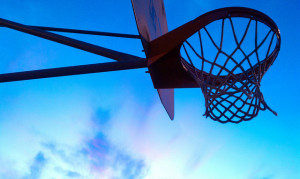Social Media and Athletes
 More and more pro sports and college teams are banning their players from using social media. And, with a rise in athletes that seem to tweet and post their way into controversy, the social media restraint seems reasonable.
More and more pro sports and college teams are banning their players from using social media. And, with a rise in athletes that seem to tweet and post their way into controversy, the social media restraint seems reasonable.
The question is, what are the dangers involved if an athlete chooses to ignore these new found bans?
Bad Press
Whether a student or professional athlete, players represent not only a team, but in most cases an entire school or organization.
So, when athletes use social media to discuss their personal life or other events that should remain private, it affects teammates, school pride, and multi-million dollar brands.
Because an athlete’s social media whim could end up affecting others, some colleges and professional sports organizations find the stakes of social media usage too high.
And, with media watchdogs and web surfing sports fans constantly on the prowl, players and coaches alike are accepting of the “better safe than sorry” approach.
Athletes and Followers
With social media, following a college team or a star athlete takes on a whole new meaning. And, with the number of athletes already using social media in relation to the number of followers that athlete has, it’s impossible to know the type of audience a single tweet or Facebook post reaches.
Team pride aside, younger audiences that follow their athletic idols are sometimes too impressionable for a player’s viewpoint or spirited statement.
For those athletes thatdo use social media to reach the masses, it’s important they’re reminded of audience diversity and the message they’re sending across with each tweet or post.
Athlete Monitoring
If word of mouth isn’t worry enough, there are now social media monitoring organizations searching for slip of the tongue athlete controversies.
And, with more post-game press conferences leaning toward what a player tweeted rather than how many yards they ran, social media is beginning to steal the spotlight.
Companies like uDiligence and Varsity Monitor are making both athletes and the teams they represent accountable for their online actions. And, these companies are especially targeting collegiate athletes. As a result, even coaches are making social media etiquette a team priority.
The Good With The Bad
Not all social media is bad when it comes to athletes voicing their opinions in the digital realm.
And, for the most part, athletes generally promote positive attitudes and messages. There’s nothing wrong with a star player pumping up followers for the big game or tweeting a post-game highlight; that’s just good press.
It’s when these messages are taken too far within the social media platform that a player’s words can count against them. With one negative comment, a positive message posted by an athlete can quickly turn into a combative conversation that spirals out of control. Situations like this are easily avoided if the athlete practices good judgment.
Social media fan bases are larger than any stadium can hold, so it’s essential for athletes in the public eye to choose their words wisely.
The social media bans that are in place are there not to silence athletes, but to protect them from the heat of the moment.
About the Author: Adam Groff is a freelance writer and MVP of quality content. He specializes in writing on a range of topics including social media, sip providers, and tech savvy athletes.
Image credit: 1.
Posted in Social Networking. Tags: social media don'ts, social media tips, Social Networking
No Replies
Feel free to leave a reply using the form below!

